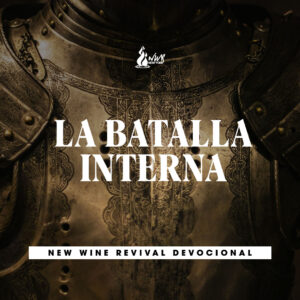
Tengan paciencia unos con otros, siendo indulgentes con las fallas de los demás por su amor. EFESIOS 4:2 (NVI)
Pablo agrega que no debemos juzgar o despreciar a otros creyentes cuyas convicciones son diferentes a las nuestras: «¿Por qué criticas las acciones de tu hermano, por qué intentas empequeñecerlo? Todos seremos juzgados un día, no por las normas de otros, ni siquiera por las nuestras, sino por el juicio de Dios».
Cuando juzgo a otro creyente, pasan cuatro cosas al instante: pierdo mi comunión con Dios, saco a relucir mi propio orgullo e inseguridad, me coloco bajo el juicio de Dios y daño la comunión de la iglesia. Un espíritu de censura es un vicio costoso.
La Biblia llama a Satanás «el acusador de nuestros hermanos». El trabajo del diablo consiste en culpar, quejarse y criticar a los miembros de la familia de Dios. Todo el tiempo que pasamos haciendo lo mismo es porque hemos sido embaucados y estamos haciendo el trabajo de Satanás. Recuerda que los otros cristianos, no importa cuánto discrepes con ellos, no son el verdadero enemigo. Todo el tiempo que pasamos comparando o criticando a los otros hermanos debería ser utilizado para construir la unidad de nuestra comunidad. La Escritura dice: «Pongámonos de acuerdo en usar toda nuestra energía para llevarnos bien entre nosotros. Ayuden a los demás con palabras alentadoras; no los derrumben con la crítica».
DÍA 21:
Cuida tu iglesia
Niégate a escuchar chismes. Chismear es divulgar una información cuando uno no es parte del problema ni de la solución. Tú sabes que chismear está mal, pero tampoco debes escuchar, si quieres proteger tu iglesia. Escuchar los chismes es como aceptar algo robado, y te convierte también en culpable del delito.
Cuando alguien empiece a contarte un chisme, ten el valor de decirle: «Hágame el favor de parar. No necesito saber eso. ¿Ha hablado usted directamente con esa persona?». Las personas que te cuentan chismes también rumorean acerca de ti. No se puede confiar en ellas. Si le prestas atención a los chismes, Dios te llama alborotador. «Los alborotadores escuchan a los alborotadores». «Estos son los que dividen las iglesias, pensando solo en ellos mismos».
Es triste que en el rebaño de Dios las heridas más grandes generalmente provengan de las otras ovejas y no de los lobos. Pablo advirtió acerca de los «cristianos caníbales» que se «devoran unos a otros» y destruyen la comunión. La Biblia dice que esta clase de alborotadores debe ser evitada porque «el chismoso revela los secretos; por lo tanto, no te asocies con el charlatán». La manera más rápida de terminar con un conflicto en una iglesia o un grupo pequeño es enfrentar a los que están difundiendo rumores e insistir en que no lo hagan más. Salomón señaló: «Sin combustible se apaga el fuego, y las tensiones desaparecen cuando se acaban los chismes”.
Reflexión:
Pablo advirtió acerca de los «cristianos caníbales» que se «devoran unos a otros» (Gálatas 5:15, paráfrasis) y destruyen la comunión. La Biblia dice que esta clase de alborotadores debe ser evitada.
Day 21 /Fourth Part • Protecting Your Church
Be patient with each other, making allowance for each other’s faults because of your love. EPHESIANS 4:2 (NLT)
Paul adds that we must not stand in judgment or look down on other believers whose convictions differ from our own: “Why, then, criticise your brother’s actions, why try to make him look small? We shall all be judged one day, not by each other’s standards or even our own, but by the standard of Christ.”
Whenever I judge another believer, four things instantly happen: I lose fellowship with God, I expose my own pride and insecurity, I set myself up to be judged by God, and I harm the fellowship of the church. A critical spirit is a costly vice.
The Bible calls Satan “the accuser of our brothers.” It’s the Devil’s job to blame, complain, and criticize members of God’s family. Anytime we do the same, we’re being duped into doing Satan’s work for him. Remember, other Christians, no matter how much you disagree with them, are not the real enemy. Any time we spend comparing or criticizing other believers is time that should have been spent building the unity of our fellowship. The Bible says, “Let’s agree to use all our energy in getting along with each other. Help others with encouraging words; don’t drag them down by finding fault.”
Refuse to listen to gossip. Gossip is passing on information when you are neither part of the problem nor part of the solution. You know spreading gossip is wrong, but you should not listen to it, either, if you want to protect your church. Listening to gossip is like accepting stolen property, and it makes you just as guilty of the crime.
DAY 21:
Protecting Your Church
When someone begins to gossip to you, have the courage to say, “Please stop. I don’t need to know this. Have you talked directly to that person?” People who gossip to you will also gossip about you. They cannot be trusted. If you listen to gossip, God says you are a troublemaker. “Troublemakers listen to troublemakers.” “These are the ones who split churches, thinking only of themselves.”
It Is sad that in God’s flock, the greatest wounds usually come from other sheep, not wolves. Paul warned about “cannibal Christians” who “devour one another” and destroy the fellowship. The Bible says these kind of troublemakers should be avoided. “A gossip reveals secrets; therefore do not associate with a babbler.” The fastest way to end a church or small group conflict is to lovingly confront those who are gossiping and insist they stop it. Solomon pointed out, “Fire goes out for lack of fuel, and tensions disappear when gossip stops.”
Reflection:
Paul warned about “cannibal Christians” who “devour one another” (Galatians 5:15 AMP) and destroy the fellowship. The Bible says these kind of troublemakers should be avoided.



